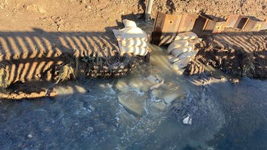RexKramer
Member
When, or not long after, NWL were taken over they took a credit line/loan from the new owner on less favorable terms than the existing arrangement. But when you invest £2B+, or anything for that matter, what sort of annual returns can/should you expect?One of the main issues is everything going into the same system effectively. Rain water joins effluent discharge from homes and business and during high rain times the system doesn’t cope.
This situation is definitely the fault of Thatcher’s neoliberal policies though. The private water industry is only required to be invest based on the amount of profits they make. It suits those companies to appear in debt, as that means they pay less tax and don’t have to invest as much. The biggest shocker with that it often they lend money from their shareholders. Who then receive repayments through interest before anything else. That doesn’t even include dividends payments.


